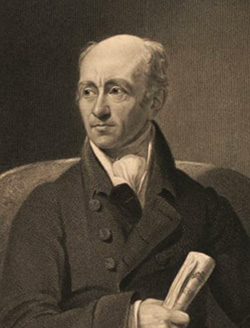Muzio Clementi
| Born | 23 January 1752
Rome, Papal States
|
|---|---|
| Died | 10 March 1832 (aged 80)
Evesham, United Kingdom
|
| Occupation(s) | composer, pianist, pedagogue, editor |
| Era | Classical |
| Works | See list |
Muzio Filippo Vincenzo Francesco Saverio Clementi (23 January 1752 – 10 March 1832) was an Italian-British composer, virtuoso pianist, pedagogue, conductor, music publisher, editor, and piano manufacturer, who was mostly active in England.
See More :

Muzio Clementi the eldest of seven children. He was taught the basics of music by the local church choirmaster. Later he started learning the organ, and made such sensational progress that he obtained a position as church organist when he was still in his early teens. In 1766 Clementi was taken to England by the wealthy Englishman Sir Peter Beckford, who provided for his lodging and musical education in return for musical entertainment at his estate in Dorset. His public debut as a pianist a few years later was a tremendous success. He moved to London, where he performed frequently as a soloist and directed concerts from the keyboard. Later, he went on tour as far as St. Petersburg, and by the 1780s he was considered one of the great keyboard virtuosos of the world. His reputation irritated Mozart, who described him as a charlatan. Clementi, on the other hand, was a real admirer of Mozart, but developed a completely different piano style, with great dynamic contrasts, rapid octaves and thundering arpeggios, paving the way for Beethoven and the romantics.
A piano contest between Clementi and Mozart in Vienna was more or less declared a draw. Clementi led a very productive life in London, playing, conducting, teaching (his pupils include J. B. Cramer and John Field) and manufacturing pianos.
Eventually he abandoned his performing career to spend more time building pianos and composing. His works include vocal and chamber works, symphonies, a piano concerto, and over a hundred piano sonatas and sonatinas. The easier sonatinas and his three volumes of studies called Gradus ad Parnassum have been central to piano teaching ever since. His other works have suffered from widespread neglect, perhaps because of Mozart´s unkind comments.
Vladimir Horowitz was one of the very few major pianists of the 20th century who appreciated Clementi´s music – since his time the composer has slowly begun to attract more interest. Clementi died a very rich man, and was buried in Westminster Abbey.
Mozart (letter to his father): “Clementi plays well, as far as execution with the right hand goes. His greatest strength lies in his passages in 3rds. Apart from that, he has not a kreuzer’s worth of taste or feeling – in short he is a mere mechanicus”
Clementi about Mozart: “Until then I had never heard anyone play with such spirit and grace”.
All pieces: |
||||
|---|---|---|---|---|
Sonatinas |
||||
| Sonatina Op. 36 No. 1 | C Major | 1797 | 3 | |
| Sonatina – 5th revised edition Op. 36 No. 1 | C Major | 1797 | 3 | |
| Sonatina Op. 36 No. 2 | G Major | 1797 | 4 | |
| Sonatina Op. 36 No. 3 | C Major | 1797 | 4 | |
| Sonatina Op. 36 No. 4 | F Major | 1797 | 5 | |
| Sonatina Op. 36 No. 5 | G Major | 1797 | 6 | |
| Sonatina Op. 36 No. 6 | D Major | 1797 | 6 | |
| Sonatina Op. 37 No. 1 | E-flat Major | 1780 | 5 | |
| Sonatina Op. 37 No. 2 | D Major | 1780 | 5 | |
| Sonatina Op. 37 No. 3 | C Major | 1780 | 5 | |
| Sonatina Op. 38 No. 1 | G Major | 1780 | 5 | |
| Sonatina Op. 38 No. 2 | B-flat Major | 1780 | 5 | |
| Sonatina Op. 38 No. 3 | F Major | 1780 | 6 | |
Sonatas |
||||
| Sonata Op. 7 No. 3 | G Minor | 1782 | 8 | |
| Sonata Op. 13 No. 6 | F Minor | 1785 | 8 | |
| Sonata Op. 25 No. 2 | G Major | 1790 | 8 | |
| Sonata Op. 25 No. 5 | F-sharp Minor | 1790 | 8 | |
| Sonata Op. 25 No. 6 | D Major | 1790 | 8 | |
| Sonata Op. 33 No. 1 | A Major | 1794 | 8 | |
| Sonata Op. 40 No. 1 | G Major | 1802 | 8+ | |
| Sonata Op. 40 No. 2 | B Minor | 1802 | 8+ | |
| Sonata Op. 40 No. 3 | D Minor | 1802 | 8+ | |
| Sonata (Didone abbandonata) Op. 50 No. 3 | G Minor | 1821 | 8+ | |
Gradus ad Parnassum |
||||
| 2. Study | F Major | 1817 | 7 | |
| 3. Study | F Major | 1817 | 8 | |
| 5. Study | B-flat Major | 1817 | 8 | |
| 7. Study | D Major | 1817 | 8 | |
| 9. Study | A Major | 1817 | 8 | |
| 12. Study | C Major | 1817 | 7 | |
| 16. Study | C Major | 1817 | 6 | |
| 17. Study | C Major | 1817 | 7 | |
| 19. Study | A Minor | 1817 | 8 | |
| 21. Study | E-flat Major | 1817 | 8+ | |
| 22. Study | A-flat Major | 1817 | 8+ | |
| 23. Study | C Major | 1817 | 8+ | |
| 24. Study | F-sharp Minor | 1817 | 8+ | |
| 27. Study | B Major | 1817 | 8+ | |
| 28. Study | B Major | 1817 | 8 | |
| 30. Study | E Minor | 1817 | 8+ | |
| 31. Study | C Major | 1817 | 8 | |
| 34. Study | A Minor | 1817 | 8 | |
| 36. Study | A Major | 1817 | 8+ | |
| 44. Study | F Minor | 1817 | 8+ | |
| 47. Study | B-flat Major | 1817 | 8+ | |
| 50. Study | G Major | 1817 | 7 | |
| 63. Study | E-flat Major | 1817 | 8 | |
| 65. Study | F Major | 1817 | 8+ | |
| 76. Study | E Major | 1817 | 8+ | |
| 77. Study | G Major | 1817 | 8 | |
| 78. Study | G Major | 1817 | 8 | |
| 87. Study | D Major | 1817 | 8 | |
| 95. Study | C Major | 1817 | 8 | |
Miscellaneous pieces |
||||
| Arietta Op. 42 | C Major | 1801 | 1 | |
Copy by : pianosintheparks.com



Leave a Reply
Want to join the discussion?Feel free to contribute!